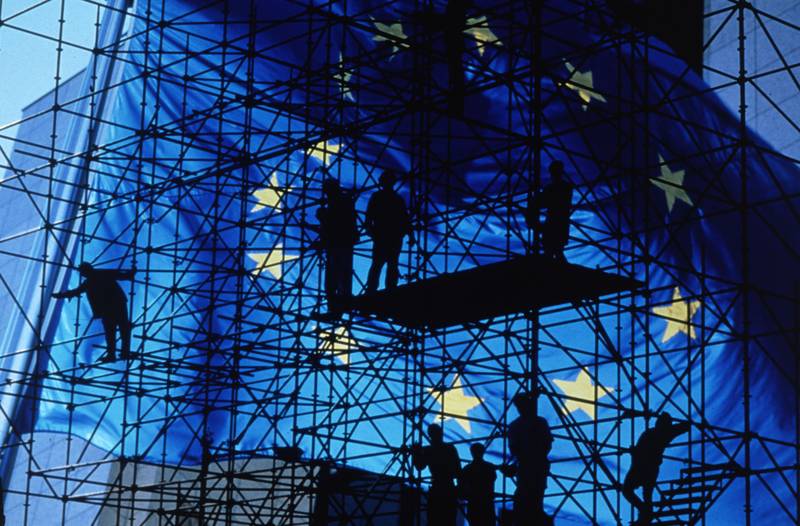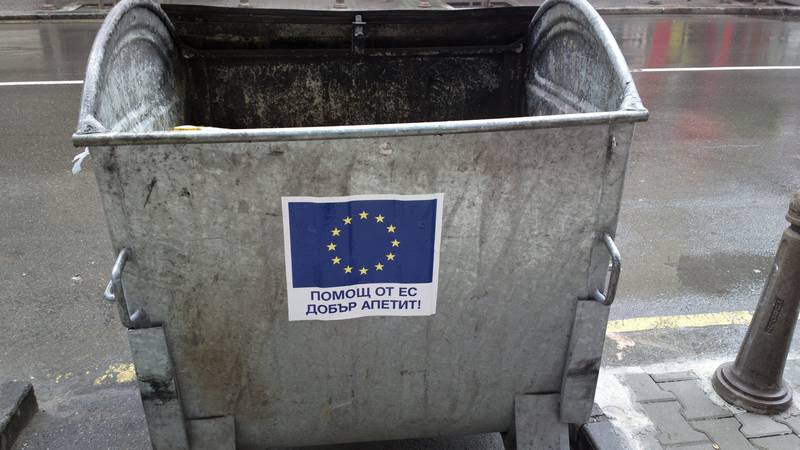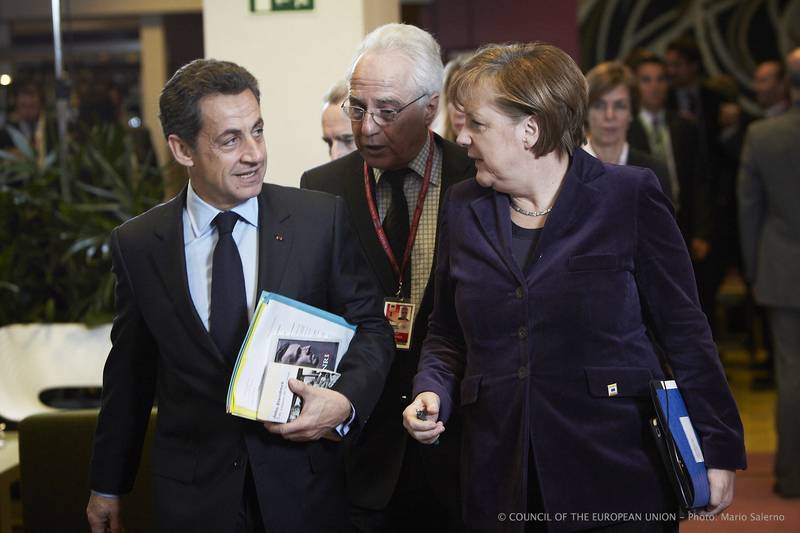The Wrong Battle for the European Commission
Adelina Marini, June 9, 2014
 Both the European Council and the Parliament have gone too far. The saga with the election of the next European Commission chief has revealed quite a ridiculous power bickering between the Council and the European Parliament, as both sides are twisting the hands of each other. Everything started, however, from the overly slippery formulation in the Lisbon Treaty which provides for the possibility the candidate of the European political party that has won the most votes to become president of the Commission. A formulation that demonstrates the huge short-sightedness of the authors of the Treaty who have failed to foresee what could happen.
Both the European Council and the Parliament have gone too far. The saga with the election of the next European Commission chief has revealed quite a ridiculous power bickering between the Council and the European Parliament, as both sides are twisting the hands of each other. Everything started, however, from the overly slippery formulation in the Lisbon Treaty which provides for the possibility the candidate of the European political party that has won the most votes to become president of the Commission. A formulation that demonstrates the huge short-sightedness of the authors of the Treaty who have failed to foresee what could happen.
And what happened is a full scale election campaign which created the illusion that we have a genuine European politics and that it depends on voters to elect the next European Commission president, which is not true for reasons already described by euinside. Currently, the leaders of the member states are pushed to the wall and are seeking an exit from the situation. Today, in Stockholm, are gathering the heads of state or government of the countries that are most strongly against the automatic election of the candidate of the party that has won the largest number of votes at the European elections (Spitzenkandidat), namely Jean-Claude Juncker. German Chancellor Angela Merkel is meeting her colleagues from UK, The Netherlands and Sweden in an attempt to reach an agreement before the EU summit in the end of the month when the decision must be approved by all the heads of state.
At the moment a mass hysteria has embraced British media who have geared up their entire arsenal in support of David Cameron who has long ceased to conduct an ideological battle for EU reform but rather a battle for political survival. On the continent, the public is split. Some say it would be a huge blow to democracy if the leaders reject the Spitzenkandidat and take out of their sleeves someone else. Others believe that this is a mockery with democracy because there are no firm data to prove that voters have supported one Spitzenkandidat or another.
The current crisis could have been avoided
The greatest blame for the current situation lies with the Council. The European Parliament announced very openly its intentions when it formally launched the election campaign in September last year. And although it was clear that in this way it threw the gauntlet and made a statement for "more Europe" and more power for the European Parliament, the leaders of the member states took the bait and supported the effort by taking part in the selection of Spitzenkandidaten. The sister parties in the biggest European political families organised congresses and agreed who their Spitzenkandidaten would be. The only ones who did not do that were the eurosceptic groups, including the European Conservatives and Reformists where a majority holds David Cameron's Conservative Party. Why was Cameron silent throughout this period on the issue, although his entire agenda was entirely oriented to the future of the EU and especially the British participation in it?
If leaders did not agree from the very beginning with the so called "automaticity" of the election of the future European Commission chief, they could have spared us the theatre with the pan-European democracy and then wonder how to handle the consequences. Instead of approaching their voters and partners in the EU honestly, the leaders have begun a trench war with each other in an effort to find the most acceptable compromise. This is a wrong battle at a time when there are much more important issues to discuss.
How to come out of the situation?
The long-term solution is a serious reform of the Treaty. This will take time and should not be done only to resolve an issue which was artificially created and can be resolved ad hoc. Any opening of the Treaties should be carefully thought over in terms of timing and goals and it should enjoy sufficient support. This should not be a legal adventure as was the case with the Convent. First, the goals need to be defined and then they should be dressed in legalality, avoiding, however, the slippery formulations that leave the door open for new ideological battles in the future.
The short-term solution is the leaders of the member states to propose their own Spitzenkandidaten who should hold a brief campaign during which everyone of them should present their views at public hearings in the Council. And I repeat - public! The member states, too, should very publicly present their views what skills should the next Commission president have and why. The leaders should vote publicly whom of the candidates they support and thus the Council's favourite to be selected. Then, the two candidates - from the European Parliament's list and the Council's - should compete in a short campaign with each other to win a majority in the European Parliament. This is not the perfect solution, but is very close to the wisest in the current environment.
Otherwise, the power game will deepen and will take too much time and energy at a time when there are too many other problems on the table. While they are seeking a solution at secret meetings, the leaders of the member states should know that the genie is now out of the bottle and the time of well known ways for appointments on key European positions is gone. There is a risk the situation to go out of control. Articles are being written by influential politicians and thinkers that calculate the price of UK's staying in the EU. There is exchange of fire across the Channel which is absurd against the backdrop of the real agenda.
This should end now in a way that is acceptable for the narrow party interests of some of the most active participants in the battle (David Cameron mostly), for the voters, but also for the entire atmosphere in the EU which is already too tense because of the existing problems. The true battle is different and is yet to begin. The June summit will be a test about whether the leaders of the member states are capable to realise which is the real agenda and to conduct the right battle which is for the future of the EU. It is not a battle for the president's post in the Commission nor is it about UK's staying in the Union.
 | © euinside
| © euinside Angela Merkel | © Council of EU
Angela Merkel | © Council of EU Nicolas Sarkozy, Angela Merkel | © Council of EU
Nicolas Sarkozy, Angela Merkel | © Council of EU